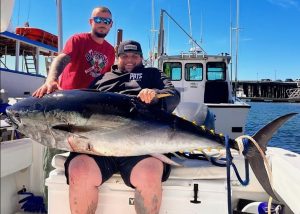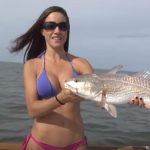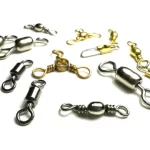After nearly six years of anticipation, it appears a fall bass run is finally underway. This week offered promising signs, with bass numbers increasing along the oceanside beaches, from the Race to Head of the Meadow. Recent weather has been ideal, with unseasonably warm, summer-like conditions and low winds, maintaining water temperatures in the mid-60s. This extended summer warmth has contributed to the bass activity, marking a notable shift in seasonal fishing patterns that have emerged in recent years.
The bass being caught are not only abundant but also larger than usual, with many exceeding the slot size. These hefty fish have likely benefited from a season of plentiful food in the area’s waters, enabling their growth. While bluefish have been spotted, their numbers remain low along the beaches. However, in the southern part of the bay near Barnstable, larger schools of big bluefish have been found, offering a productive opportunity for anglers.
Fluke fishing has remained steady, though most catches are undersized. The largest fluke reported this week measured 16½ inches—just short of the legal limit of 17½ inches.

Tuna Season and the Wicked Tuna Effect
The commercial tuna season officially ended on September 12 after the quota was filled. The rise in popularity of tuna fishing, driven partly by shows like Wicked Tuna, has significantly increased the number of boats pursuing these prized fish. Many are drawn by the show’s portrayal of tuna fishing as a straightforward endeavor, where fishermen seem to land fish easily and secure high prices for their catch. In reality, the competition has grown fierce, with quadruple the number of boats now on the water compared to past years. This increased pressure has led to faster quota fulfillment.
Despite the closure of the commercial season, recreational tuna fishing is still yielding impressive catches. Last week, Capt. Nico Pace of the Cape Tip’N and his friend Anthony Acito landed a 65-inch bluefin tuna. Recreational catches range from 27 to 73 inches, and the fall season will reopen on October 1. However, as temperatures drop and winds shift, the number of boats chasing tuna is expected to decrease significantly.
Marine Activity and the Fall Trawl Survey
Humpback whales continue to frequent local waters, with one recently sighted in Flyer’s mooring field. Meanwhile, the state’s Division of Marine Fisheries launched its annual fall trawl survey on September 15. This survey, conducted since 1978, helps monitor the health of marine species in Massachusetts’ coastal waters. Initially scheduled for early September, the survey was delayed due to maintenance on NOAA’s research vessel, the R/V Gloria Michelle.
The trawl survey began in Massachusetts Bay, Cape Ann, and Ipswich Bay and will continue along Cape Cod Bay and other regions around the Cape and Islands. The survey plays a vital role in assessing the overall condition of various species, guiding conservation efforts and helping manage marine resources effectively.
As fall fishing continues, anglers are encouraged to stay informed of seasonal changes and adjust their strategies accordingly. The return of a fall bass run, combined with ongoing opportunities for recreational tuna fishing and other species, promises a fruitful season for those who venture out on the water.
Image/Source: provincetownindependent





